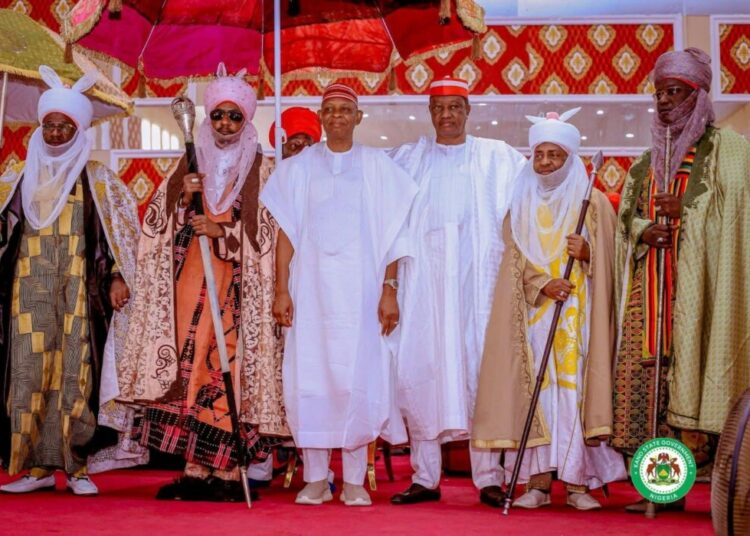Kano State governor, Abba Kabir Yusuf, has inaugurated the restored Kano Council of Emirs, marking a significant return to the state’s centuries-old traditional leadership structure.
The Council has Emir Muhammadu Sanusi II as chairman, with the Emirs of Gaya, Karaye, and Rano as members.
Spokesperson to the Governor, Sanusi Bature Dawakin Tofa, who announced the development in a statement, said this followed Governor Yusuf’s signing of the Kano Emirates Council Law (Repeal Bill) 2024, which dissolved the five separate emirates created under former Governor Abdullahi Umar Ganduje.
The move effectively reinstates the traditional single-emirate system that has defined Kano for over 700 years.
Speaking at Government House in Kano, Governor Yusuf said the return of the unified Council aimed to strengthen the traditional institution and enhance its role in governance.
“The inauguration of the Council of Emirs today is the reaffirmation of our administration’s commitment to preserve Kano’s cultural legacy, strengthen good governance, and deepen the partnership between the Government and the Emirates,” the governor was quoted as saying.
He added that the Council will serve as a central forum where the state’s royal fathers meet to deliberate and offer critical advice on issues affecting the welfare of the people.
Deputy Governor of the State, Aminu Abdulsalam Gwarzo, said the restored Council would contribute meaningfully to Kano’s development agenda.
Earlier, Special Adviser to the Governor on Chieftaincy Affairs, Professor Tijjani Muhammad Naniya, traced the historical evolution of the Kano Emirate and its linkages with Rano, Gaya, and Karaye.
He noted that the Governor had revived a unified emirate system dating back over seven centuries, with the Emir of Kano as the head.
Speaking on behalf of the other emirs at the event, Emir Muhammadu Sanusi II, described the Council’s revival as timely and in line with longstanding tradition.
He praised Governor Yusuf for what he called monumental achievements across the state and pledged the commitment of all traditional rulers to the state’s progress.





